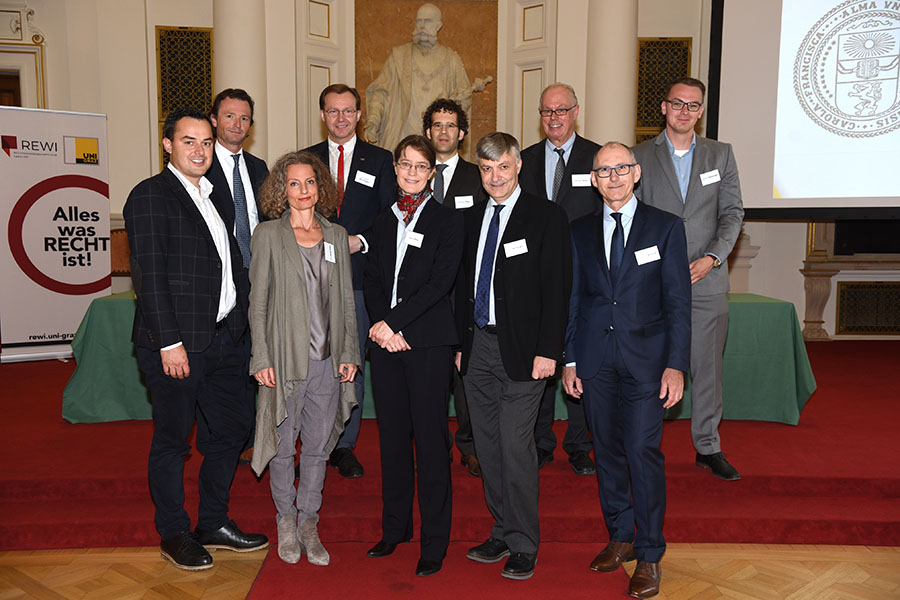Many experts conclude that carbon taxes and other taxes related to the environment are particularly powerful and cost-effective instruments for fulfilling the Paris Agreement climate objectives and the UN’s Sustainable Development Goals (SDGs). The general public, on the other hand, is less than enthusiastic about the idea of paying more taxes. “If it’s done in an intelligent way, a carbon tax can stimulate positive trends both in terms of social justice as well as economic prosperity”, notes the economist Karl Steininger. The Environmental Law Forum, which takes place at the University of Graz on 29 May 2019, will present examples of international best practices and paths towards an environmentally friendly, socially and economically viable fiscal reform, which can also be chosen in Austria.
As the name suggests, a carbon tax is an environmental tax on carbon dioxide and other greenhouse gases. As a result, goods which entail higher levels of emissions are more expensive. This price signal is designed as an incentive for companies and consumers to switch to more sustainable alternatives. Until now, politicians in Austria have been opposed to the introduction of a carbon tax. An argument: The public cannot be expected to pay additional taxes. Karl Steininger from the Wegener Center for Climate and Global Change at the University of Graz argues that a carbon tax doesn’t need to be a burden for households and the economy, citing examples from other countries.
The climate economist mentions Switzerland as a role model. “They introduced a carbon tax there in 2007, and the revenues are redistributed among the population, per capita, as a climate bonus. Employers receive part of it, which lowers their incidental wage costs. The rest of the funds are paid out to citizens through their social insurance provider”. Although consumers initially pay more for emission-intensive goods, at least they are refunded part of these costs. The amount of the climate bonus is the same for everyone. Those whose carbon expenses are less than the amount of the bonus actually make a profit.
Steininger uses this example to dismantle a stereotype: It is not necessarily those with a lower socioeconomic status who are punished by carbon taxes. “Our studies have shown that CO2 consumption per capita increases with income. Hence poorer households in Switzerland often receive more than they pay in”.
Another example of how effective a carbon tax can be without curtailing economic growth comes from a Scandinavian country. “Since the introduction of a carbon tax in 1991, Sweden has reduced its emissions, measured in CO2 equivalents, by 26 percent. At the same time, its economy has grown more than Austria’s, and it has been in the direction of a sustainable structure. Here in Austria, however, our emissions have increased”, says Steininger. At the same time, the researcher notes that the laws of economics cannot be ignored. “To remain internationally competitive, Sweden’s export-oriented and emission-intensive economy is exempt from the carbon tax”.
This is just one of many international experiences that will be shared at the Environmental Law Forum on 29 May 2019 at the University of Graz. The event is under the scientific direction of climate researcher Gottfried Kirchengast, environmental lawyers Gerhard Schnedl and Eva Schulev-Steindl as well as Karl Steininger. They are also addressing the question of how a carbon tax could benefit Austria.
“Austria has overlooked this option in the recent tax reform”, regrets Steininger. “Although the tax on petroleum is relatively high here, it still can’t cover all the costs that arise in connection with transport: everything from maintaining roads to health and the environment”. This is why Steininger feels an additional carbon tax is necessary. It would also make sense for heating, farming and waste management.
“A price regulation would provide key players with more leeway than demands and bans would. It would allow companies and individuals to make the adjustments they can implement most easily, depending on their situation”, says Steininger, which is why he argues in favour of environmental taxes. It is important to always see things from a holistic perspective. “The taxes have to be introduced in a way that all 17 SDGs, including those of a social and economic nature, can be achieved”.





